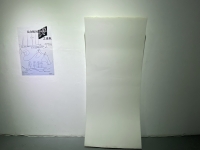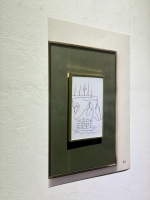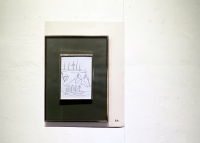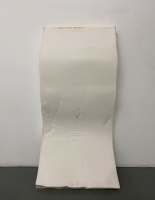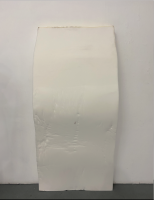《馋》,4K, 双屏幕视频,2k版本:
馋 from Tingwei Li on Vimeo.
经常发生海难事故的一片海会被说成“很馋”。二十年前在家乡发生过一次海难,使三百多人消失在黑夜的海中,鲜被人所知。2019年“我”在同一路线的航行中,产生了持续的无法被援救的焦虑。在生命里消失掉的家人,只残存记忆于十岁的速写本中。
现实中航行并不存在危险,只把离家和漂泊的情绪凝缩化。就像现实中的海鸟并不会攻击人类,只是加强了一种求生的欲望。碎片化的自我确认短暂而不值一提,人在群体中的焦虑和不安,作为与社会性相关的激情结果形成恐惧症。对存在的需求和确认,类似“馋”的感觉。
This work takes its title from the Chinese word “馋” — loosely translated as “greedy” — which, in local folklore, is also used to describe a dangerous stretch of coastline where maritime accidents frequently occur. Twenty years ago, over 300 people were lost at sea near my hometown; their bodies were never recovered. In 2019, while traveling the same ferry route, I found myself haunted by the thought of those vanished lives, and the helplessness of an attempted rescue that never succeeded.
Some of those who were lost had personal ties to my family — stories passed down to me and preserved in sketches across my notebooks.
In truth, this ferry route is no longer considered perilous, just as seagulls do not, in reality, attack humans. They merely act out of instinct — to survive. This is not simply a metaphor about a fragmented self. Rather, under the weight of social conditions, a kind of anxiety emerges — one that teeters on the edge of panic.
The word “馋” also carries the deeper meaning of craving — a desperate longing for presence, for meaning, for life to be witnessed. This work is an attempt to give form to that craving.
"从白鲸到馋之迷航"李亭葳个人项目From 【Moby Dick】to【La navigation enchantée】 from Tingwei Li on Vimeo.
